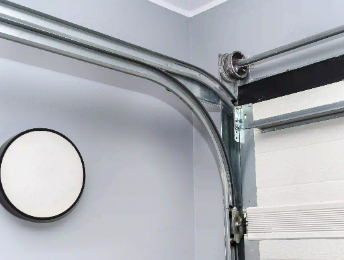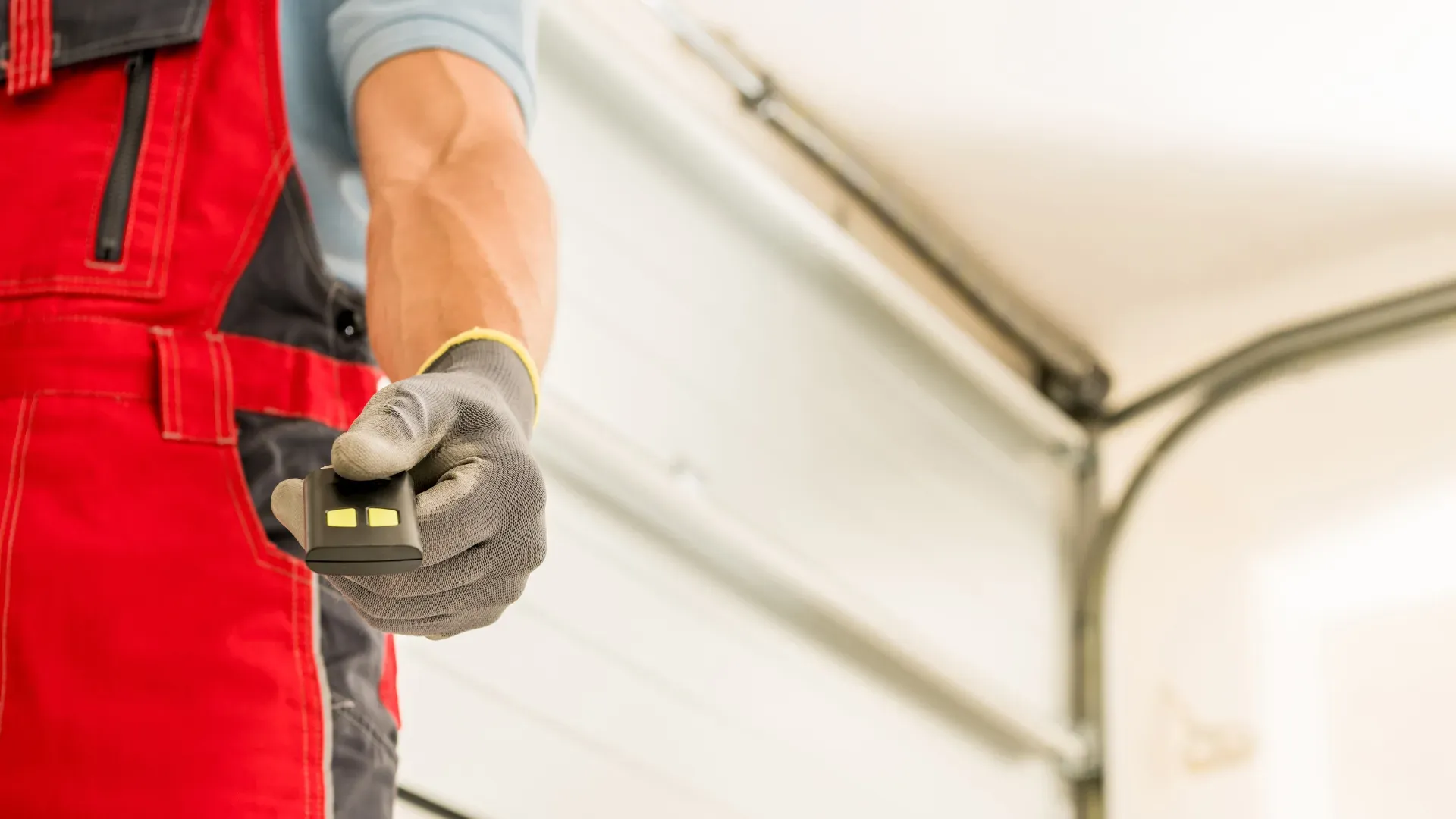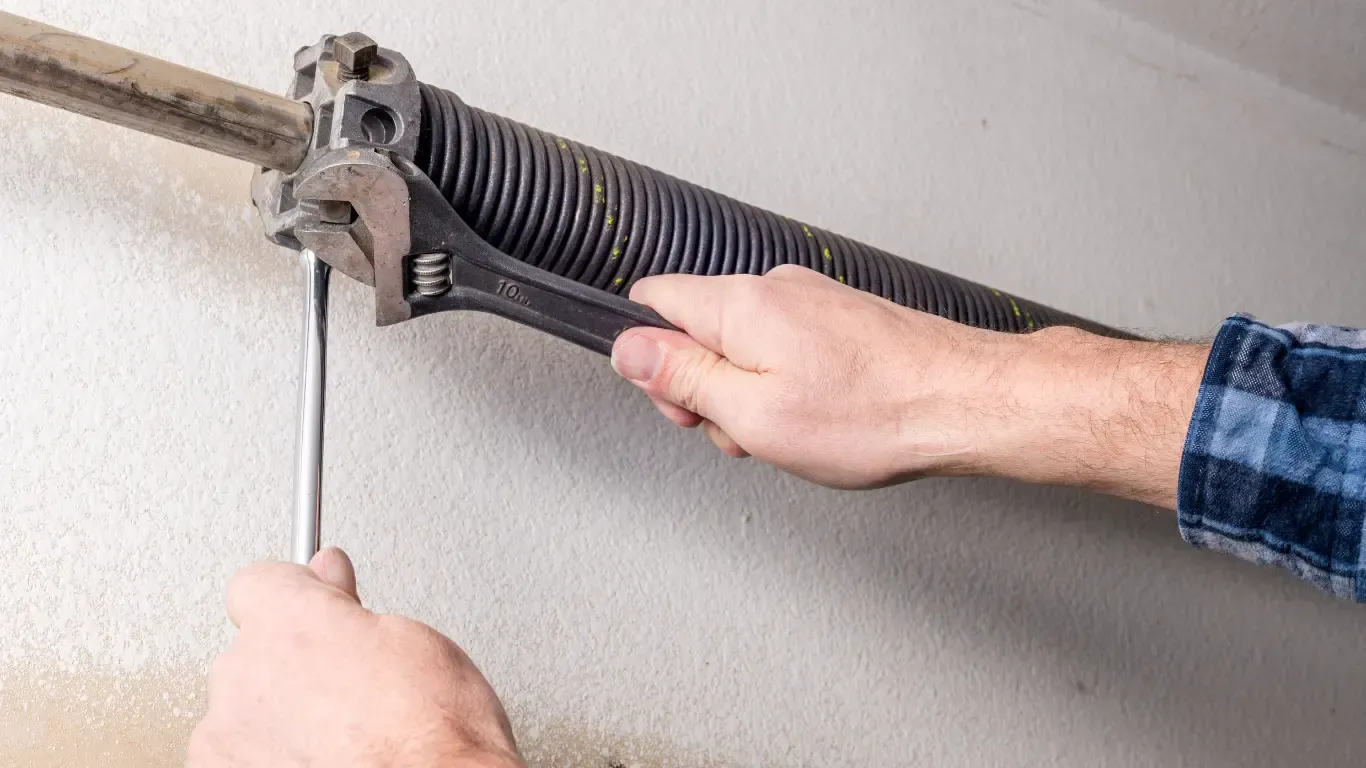Why Are Garage Door Springs Dangerous: What You Need to Know
Published: Sep 23, 2025
Most people don’t think twice about their garage door — it opens, closes, and just works. However, that smooth operation depends on a spring system under intense tension. The springs do the heavy lifting, but when they snap or malfunction, they can be extremely dangerous to handle without proper training. So, why are garage door springs dangerous? Keep reading, and Up & Down Garage Doors will explain the hidden risks and why professional help matters.
Why Are Garage Door Springs Dangerous?
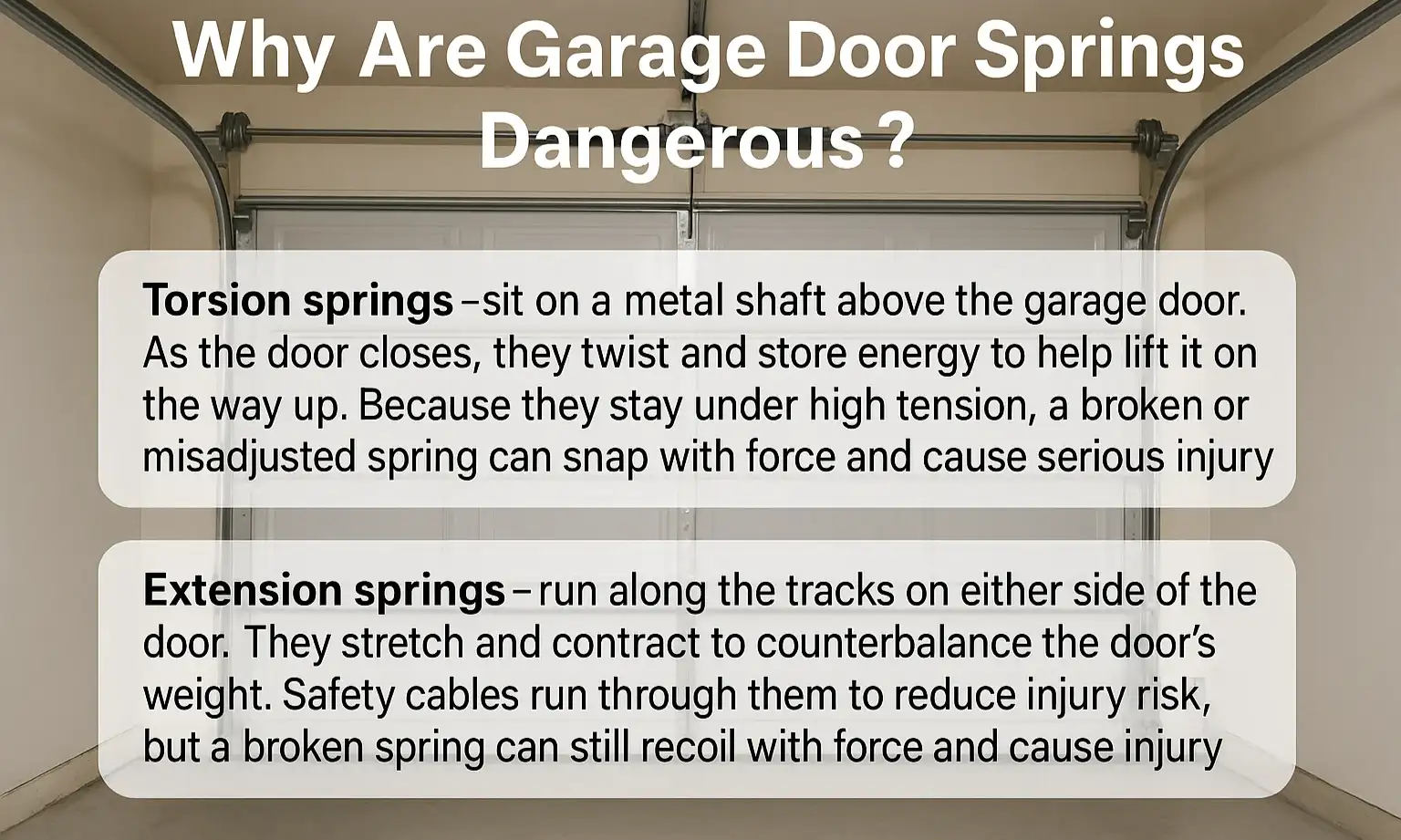
The core reason why garage door springs are dangerous is the incredible amount of stored energy they contain. Imagine the force of a giant rubber band stretched hundreds of times its length. That’s the kind of tension these springs hold every time your garage door opens and closes. You’ll typically find two main types:
- Torsion springs sit on a metal shaft above the garage door. As the door closes, they twist and store energy to help lift it on the way up. Because they stay under high tension, a broken or misadjusted spring can snap with force and cause serious injury.
- Extension springs run along the tracks on either side of the door. They stretch and contract to counterbalance the door’s weight. Safety cables run through them to reduce injury risk, but a broken spring can still recoil with force and cause injury.
Both types of springs are engineered to counterbalance a garage door’s heavy weight, which can be hundreds of pounds. Over time, the constant tension causes them to wear out or snap. When that energy is released suddenly, the outcome can be dangerous. To better understand these important components, check out our guide on how a garage door spring works.

The Real Risks: Understanding the Dangers of Garage Door Springs
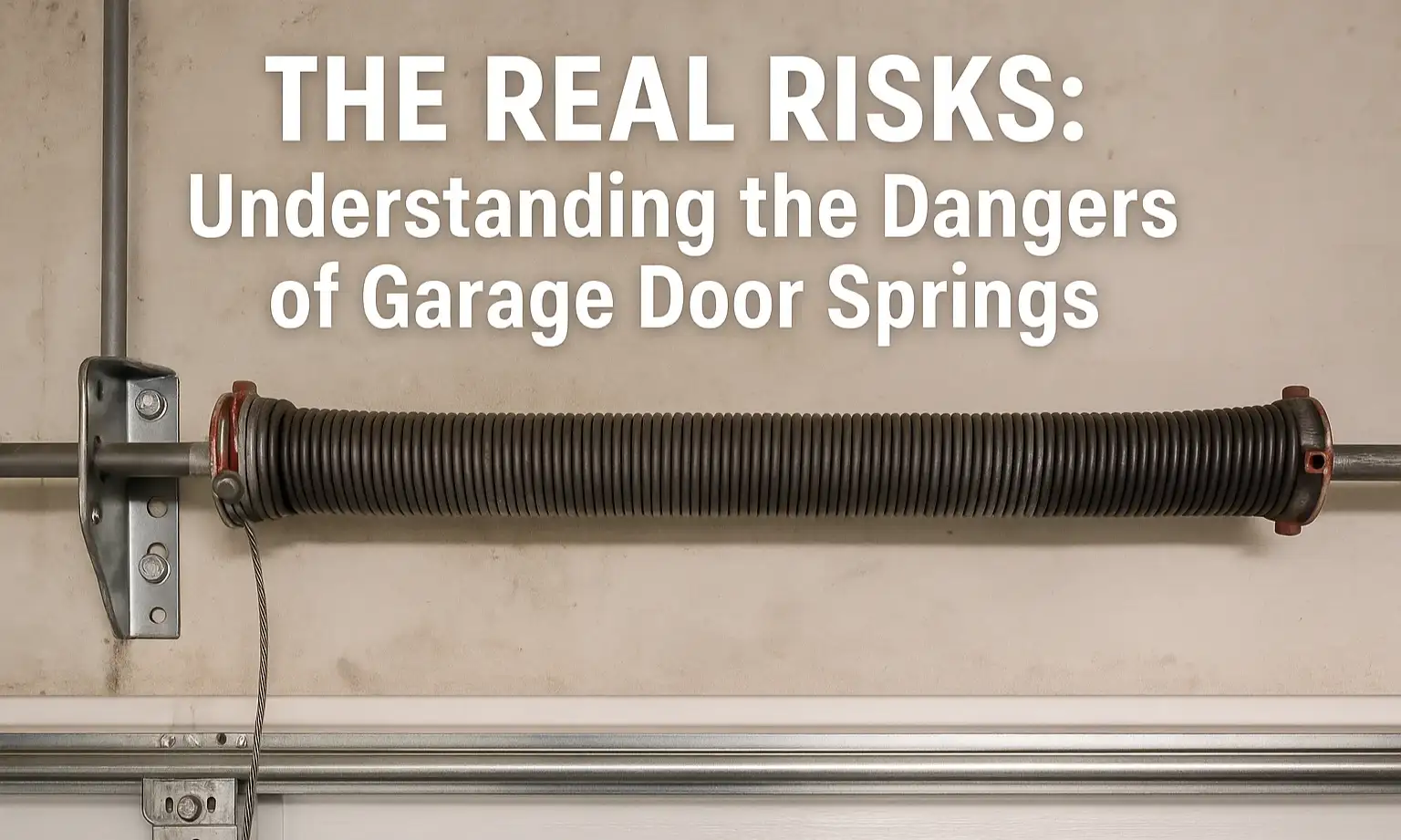
Serious injuries can happen when a garage door spring breaks or someone tries to fix it without proper tools and training. The dangers of garage door springs shouldn't be taken lightly. When a spring snaps, it can release a violent whipping action. This can lead to deep cuts, broken bones, concussions, or even life-threatening injuries. In some cases, this energy can damage vehicles, walls, or the garage door itself.
One of the most overlooked risks is what happens after a spring fails — your garage door becomes extremely heavy and unbalanced. If someone tries to lift or close it manually, it can come crashing down without warning.
Many homeowners try DIY spring repairs, unaware of the garage spring danger they’re dealing with. Due to the extreme tension, it’s always best to leave any work on these components to certified professionals. When dealing with high-tension components, scheduling professional garage door spring service isn’t just convenient — it’s essential for safety.

Summing Up
Your garage door springs aren’t something you can fix with a simple DIY approach. The immense tension in these springs is essential for your garage door, but also a significant hazard if they break or are handled incorrectly. That's why garage door springs are dangerous.
Don’t risk serious injury by attempting DIY repairs on these critical components. If your springs are worn, noisy, or broken, contact Up & Down Garage Doors. Our trained technicians use the proper tools and techniques to repair garage doors safely and reliably.
You may also like
